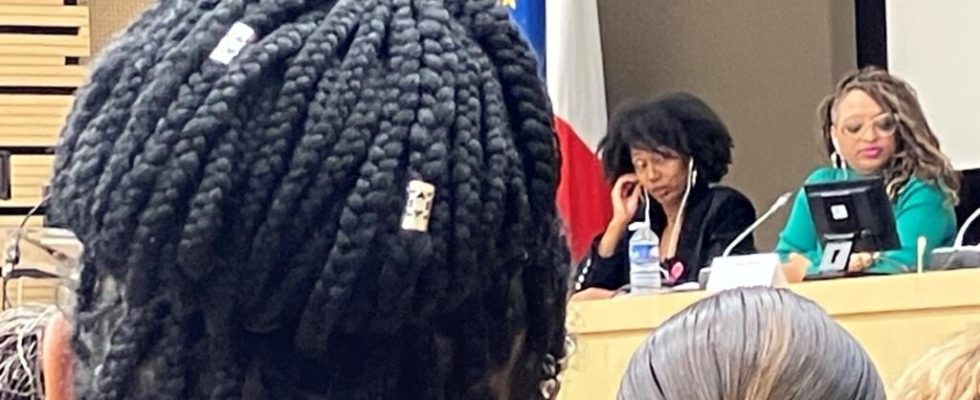Being less likely to be selected for a job interview or in the search for accommodation because of the cut or texture of your hair is what is called hair discrimination. Guadeloupe MP Olivier Serva, from the Liot group, is trying to have these still little-known discriminations recognized. From this Wednesday, March 27, this bill will be debated in the Chamber and submitted to a vote by parliamentarians.
The subject can make those who do not feel concerned smile. In France, six out of ten people do not have straight hair. This is the case with Kenza. This influencer today proudly wears a curly afro cut. However, this was not always the case.
“ I have a beautiful curly afro. Previously, I relaxed and straightened it a lot, so in terms of my health, I put it at risk. And then, I distorted it a lot to match beauty standards, since that’s what I was told, that my hair was dirty, unkempt, unprofessional, that it looked better on me when it was smooth, since supposedly neater, softer, shinier, and my appearance is not going to justify my skills », laments Kenza.
In 2005, a steward for a national airline was fired by his employer because of his braids. This affair will be the starting point for MP Olivier Serva, the initiator of this law.
“ It’s about saying no to hair discrimination, regardless of hair length, texture or color. This is the meaning of this article. This concerns a lot of Afro-descendants, but not only, specifies the deputy. Then, there is no ethnic study in France, but in the United States or Great Britain, there is. They say several things. The first is that you have two out of three black women who say they have to change their haircut to go and apply for a job interview. »
“We don’t accept you for what you are”
When looking for a job, physical appearance and hair are important factors that can influence a recruiter’s decision.
“ There are certain times when I had appointments for student internships and I understood that it bothers a little bit, and that a cut, let’s say more square, without braids, with a gradient, the people would prefer that », Declares Louis, 23, student.
“ They called me into the office and said: “We know you care about your hair.” I answer : “Oh well, don’t you?“, and I was asked to straighten it, because it wasn’t professional. My hair, even if I straighten it tomorrow, I take the shower, it straightens again. So, they were telling me: “We don’t accept you for what you are“ », Testifies Fanta, a former police officer victim of harassment.
When it comes to grounds of discrimination, hair is often overlooked. Rokhaya Diallo, journalist: “ There is really discrimination that is implicit, where we are not going to tell you that the problem is that you are black or of Afro-descendant, but we are going to tell you: “This hairstyle does not correspond to the image that our company wants to promote.“So this is indeed important to talk about today. »
The text carried by MP Olivier Serva would like to fill “ a hole in the racket » in the French legislative arsenal against discrimination.
Read alsoFrance: temporary employment giant Adecco condemned for hiring discrimination and racial profiling
